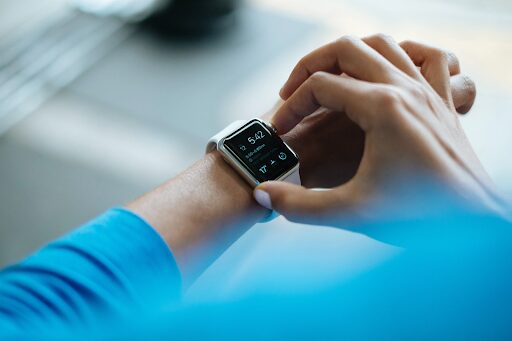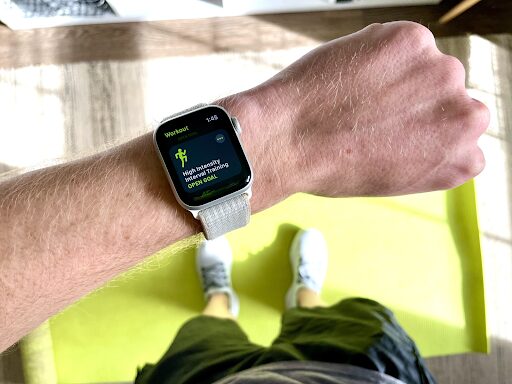
By now, you might own or have experienced using a health tracker. From apps, wristbands, and earphones to watches and appliances, keeping track of your health is progressively more important to many people. Especially in these pandemic times, people are gaining awareness about recognizing their health status. In other words, to better know what is and is not good health. As such, they are taking the initiative to educate themselves, watch videos, and otherwise learn more about their bodies. If we take this to a larger scale, imagine what hospitals and the healthcare system are starting to do with such technology. What exciting roles will health tracking play, especially in the future of healthcare?
What is health tracking?
Health tracking is the collection and analysis of data related to your health. There are a lot of apps available now that can track anything from your calories, steps, weight, altitude, and even your sleep patterns. For example, companies like Fitbit and Apple have developed wearables such as fitness trackers and smartwatches. Such devices measure your daily run distance, register the depth of your sleep, and even give you scheduled reminders to move around or take a walk throughout the day. Whether you want to track your fitness progress or just keep an eye on your baseline health levels, the industry is no doubt growing at an unprecedented pace, offering abundant features that can cater to your specific needs and budget.
What are the benefits and risks of tracking my health?

They say that you can only achieve what you measure. This premise holds true for health tracking, where crunching the numbers can help you achieve your goal. Measuring your progress is a valuable part of a healthy lifestyle and a useful gauge for assessing your workout regime and meal planning. By doing this, you not only figure out what works best for you, but you also enjoy several other benefits like:
- Behavior change – goal setting, instant feedback and rewards, and social factors such as being part of a community can result in more significant weight loss and other health benefits
- Motivation boost – your tracker can provide you eye-opening feedback on what you are doing well and what you can improve on, giving you the occasional pat on the back
- Taking charge of your health – since health tracking offers a low-cost and efficient way to be aware of your health status, it enables you to become a more active participant in your health
- Balancing your nutrition – becoming more aware of your eating habits will aid in reaching your goals, whether it is to lose, gain, or maintain your weight
- Greater awareness of your lifestyle choices – making informed decisions is the key to a healthy lifestyle
These are wonderful benefits of health tracking, but we should also be wary of the potential risks. Namely, data privacy may cause concern, especially if someone hacks your device or account. That would expose delicate personal information such as your name, age, height, weight, and even your address and exercise routes. To prevent this, you must be vigilant in protecting yourself and your data. Above all, take time to educate yourself about how a device or app handles your data before choosing which one to use. A strong password that is difficult to guess is a critical part of being protected. Lastly, make sure you understand what your devices are tracking; control over when it is and is not recording.
What does health tracking mean for healthcare?

All these health trackers employ some form of artificial intelligence or AI. What it aims to do is mimic human cognitive functions but on a more extensive and faster scale. With AI, we can crunch numbers and data faster and delve into a deeper analysis of information.
In the healthcare setting, AI implementations are, in fact, complicated algorithms that process large volumes of data to provide outputs relevant to healthcare professionals. Namely, those outputs can effectively aid clinical practice. For example, AI algorithms rapidly process many imaging results and identify patterns associated with a disease (may have eluded trained healthcare professionals’ human eyes). These are the key roles that AI plays in the clinical setting:
- Provides doctors with up-to-date medical information gathered from journals, textbooks, and clinical practice guidelines to provide the best possible patient care
- Reduces diagnostic and therapeutic errors which are inevitable and never too low in human clinical practice
- Improves accuracy of information attained through self-correcting abilities based on huge amounts of training data and user feedback
These features can improve the quality of care physicians provide and the outcomes of the patients treated. On a bigger scale, AI can digest and extract helpful information from a large patient population that will assist in making real-time clinical decisions.
What’s in store for AI in healthcare?

AI technology continues to make leaps and bounds, especially in the healthcare setting. Beyond radically changing the way doctors take care of their patients, it can also improve the administrative process involved in provider, payer, and pharmaceutical organizations.
Among the growing applications of AI, machine learning might be the most important one as it has the potential to transform the healthcare system as a whole. Machine learning involves fitting special modifiable algorithms (models trying to replicate an aspect of the real world) to data (reality-based recordings). A machine repeatedly using the evolving algorithm becomes more competent at a task; therefore, we say it “learns.” This technological approach can be particularly effective in predicting which treatment protocols are most likely to succeed given a particular patient (precision medicine). Imagine how helpful this technology would be in an emergency setting. We would no longer have to rely on data someone laboriously gathered manually, likely using error-prone methods. Instead, the data would already be available and could trigger a faster emergency response and resolution of the health problem. Think of the Apple watch’s fall detection feature, which alerts a designated person that the wearer has fallen. Such technology, applied on a larger scale in healthcare, substantially cuts the response time between the triggering event and needed care. Additionally, this would enable redirecting of precious resources from data gathering to swift action upon the data. Indeed, the possibilities for AI in the health setting are exciting and endless.
Summary
While AI can not replace human clinicians, together, they will improve the quality and efficiency of care provided. We cannot do away with the exclusively human attributes that make healthcare unique: empathy, persuasion, and big-picture integration. Still, AI has tremendous potential to elevate the information, healthcare provision, and administrative systems we currently have. Additionally, sensors are becoming increasingly miniaturized, high fidelity, and cheap. Simultaneously, devices like smartphones and smartwatches will only increase versatility and track more aspects of our health. If specialists implement these technologies humanely, they have great potential to empower the individual in a journey. One to avoid or minimize disease and upgrade their health, fitness, and wellbeing.
References
Davenport, T., & Kalakota, R. (2019). The potential for artificial intelligence in healthcare.
Future healthcare journal, 6(2), 94–98. https://doi.org/10.7861/futurehosp.6-2-94
Jiang F., Jiang Y., Zhi H., . . . Wang, Y. (2017). Artificial intelligence in healthcare: past,present and future. Stroke and Vascular Neurology. 2; doi: 10.1136/svn-2017-000101
Lifesum. (2018). What health tracking is and why we need it. Accessed on 12 Oct 2021 from https://lifesum.com/nutrition-explained/what-health-tracking-is
University of Illinois Chicago. (2018). What you need to know about health tracking. Accessed on 12 Oct 2021 from https://healthinformatics.uic.edu/blog/what-you-need-to-know-about-health-tracking/
